Business: Germany / Global
Riding high
We visit Canyon’s state-of-the-art HQ to find a bicycle maker that is rapidly going through the gears.
“This is a do-everything bike,” says Arthur Janzen, Canyon’s global category director for urban and recreation, suitably dressed for a ride in shorts and a T-shirt. “No matter where you go, the bike supports you.” We’re on a two-wheeled tour of the bike brand’s global HQ in Koblenz. In the hills above us is German wine country and the sun is shining as we ride down a path next to the Rhine, testing the bike that Janzen is referring to, the Pathlite:On suv, as well as the Roadlite:On CF. These are two of the latest e-bikes in this category.
Canyon, with its huge number of pedal and e-bikes – from road to mountain – on offer via its website, is clearly ambitious. It’s determined to be at the forefront of a bicycle industry that’s continuing to develop at almost the same lick as the automotive trade.
The Roadlite has wireless gear changing, lights integrated with its battery and a motor by Porsche-owned company Fazua. The Pathlite, a trekking bike with fat tyres, comes with the option of abs (the anti-lock braking system pioneered by car designers) to stop from you going over the handlebars, as well as a belt-drive system that lets the rider change gears with a twist of the right handlebar rather than a click shift. Both offer graded levels of pedal assist – and cost several thousand euros.
The company’s new HQ – a collection of box-shaped, black-and-white buildings comprising offices, a showroom and an e-bike centre – opened last year. When monocle meets the company’s ceo, Nicolas de Ros Wallace, he is sitting in a Vitra armchair in an office filled with high-performance bikes and cycling paraphernalia. De Ros Wallace, who has Spanish, Italian and British roots, is sporting one of the brand’s black T-shirts and, though we’re assured that dressing in company kit isn’t compulsory, most people here are embracing the look. De Ros Wallace came onboard in 2021, after leadership roles at Zara and, most recently, Nike, where he oversaw the Jordan segment from the sportswear behemoth’s European base in the Netherlands. He still commutes to Canyon from Utrecht.
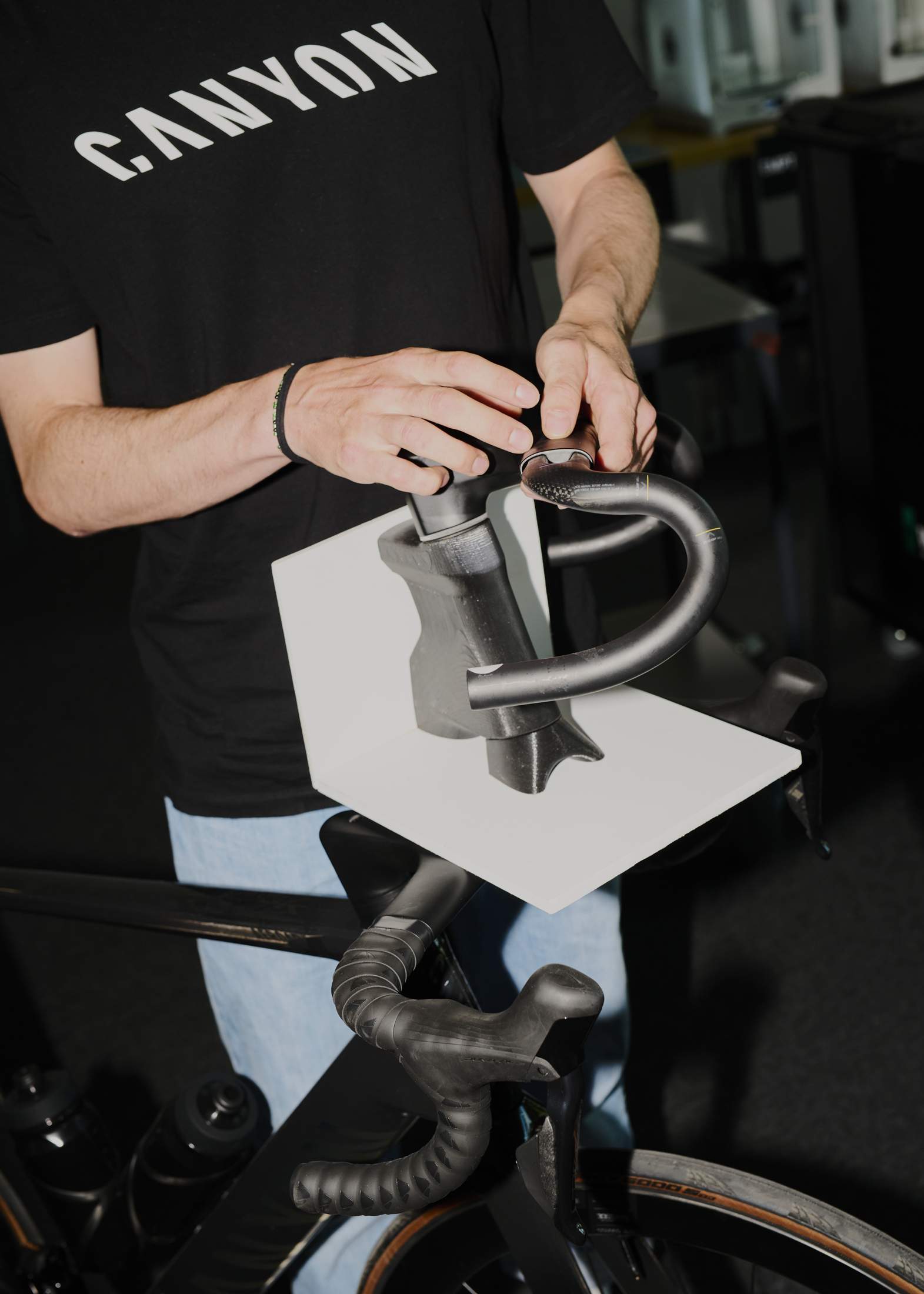
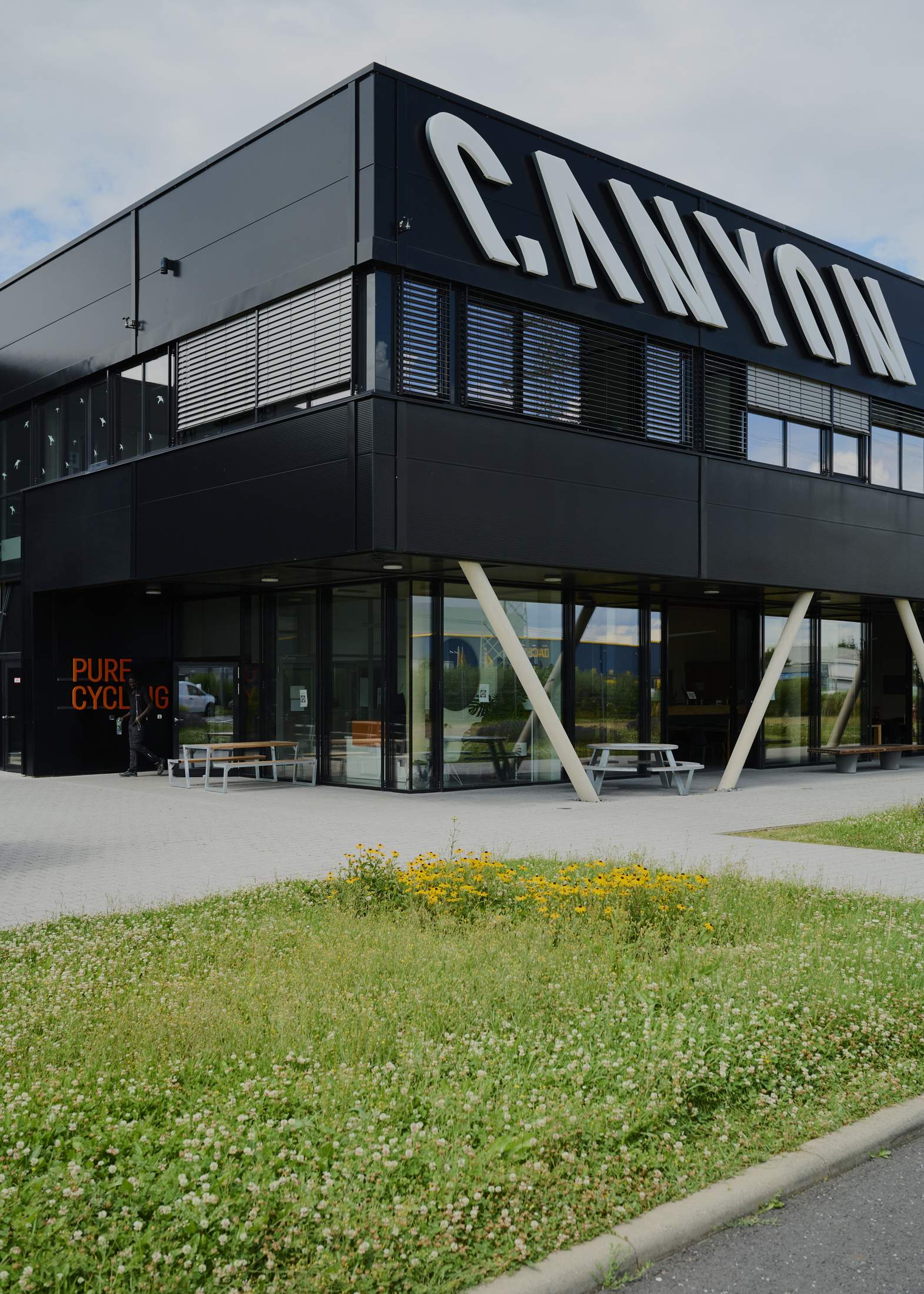
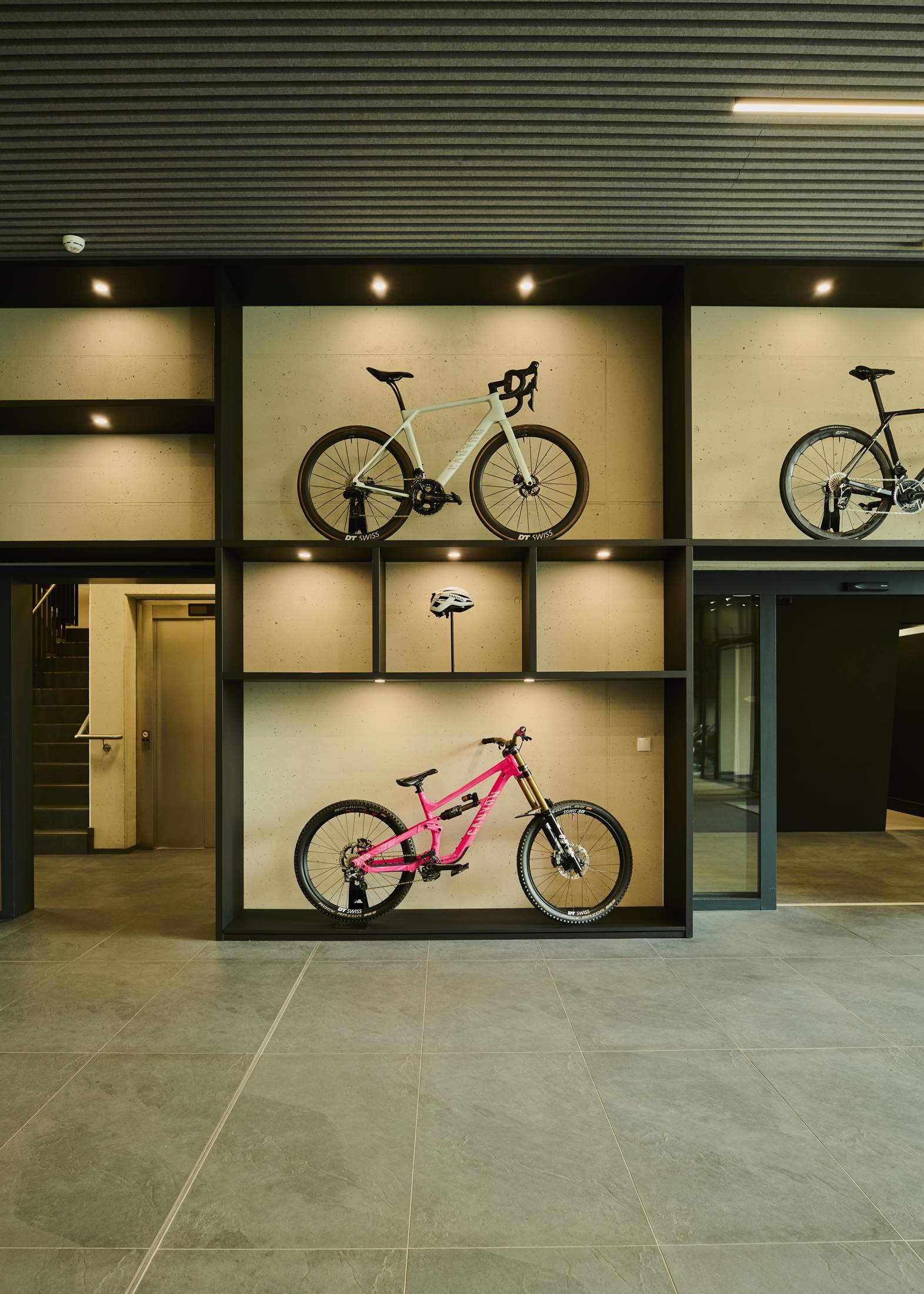
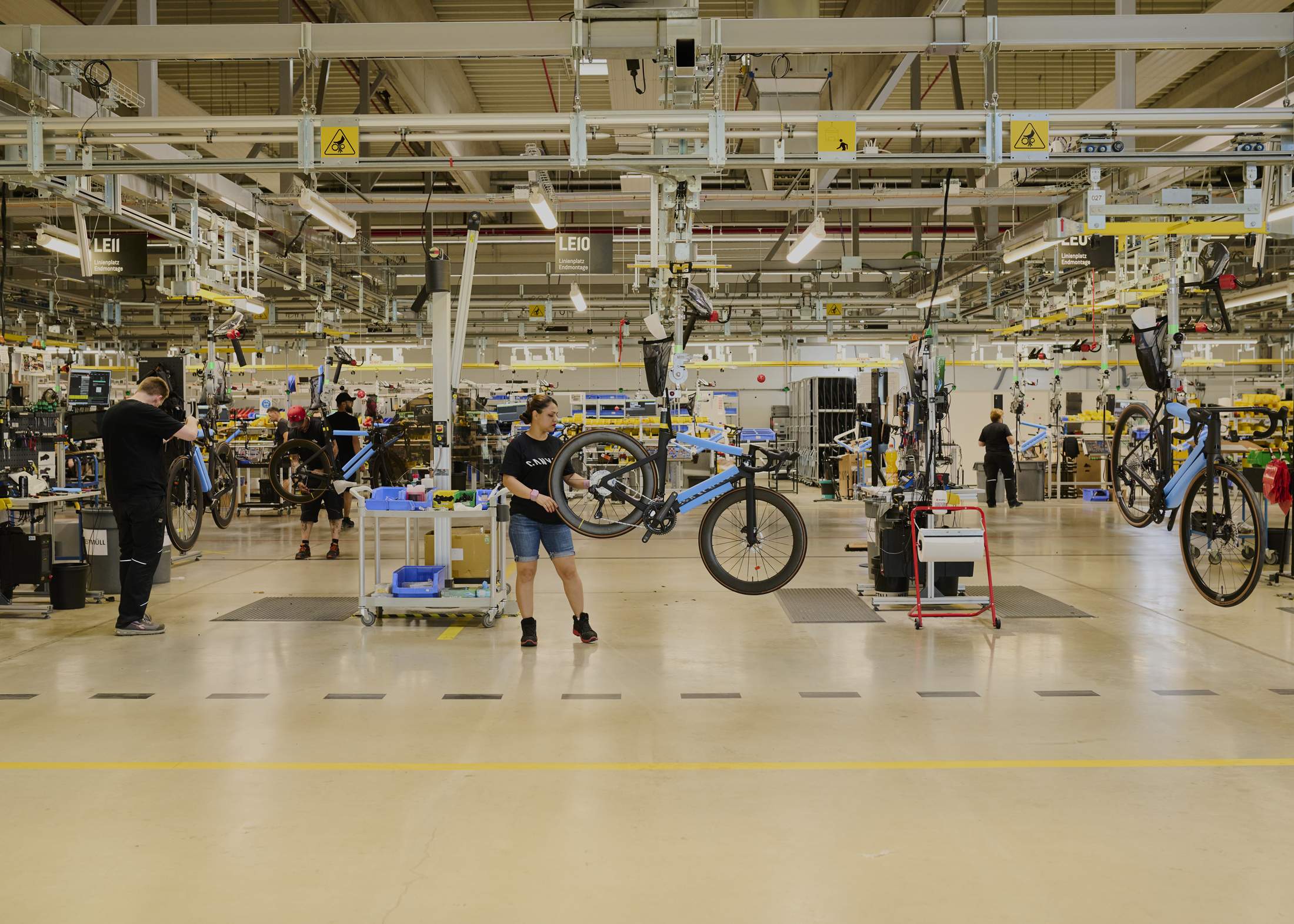
De Ros Wallace says that urban bikes represent about 5 per cent of global sales, something that he wants to increase. “One of our strategic pillars is urban mobility,” he says. “But it doesn’t have to come by bringing down performance. It has to come by pulling up urban mobility.” He is determined to bring a design-forward, technology-filled approach to city biking, an area that he thinks offers big opportunities for growth as metropolises reassess their transport infrastructure.
Canyon, which employs nearly 1,700 people worldwide, including at a hub in Amsterdam, isn’t aiming to be the next Specialized or Giant Bicycles. In fact, being the biggest bike company in the world isn’t part of its game plan. “Others play that role,” says De Ros Wallace. “Our ambition is to be the most innovative and inspiring.” The brand is banking on differentiation to stand out from the pack as it looks to tweak its catalogue. Part of the plan, being an e-commerce player, is striving to provide the best customer service and extending the ways in which consumers can interact with the brand. This has been done through investment in an app and a forthcoming membership scheme. Canyon’s physical presence is also being extended with the growth of its Canyon Factory Service (cfs) centres – essentially repair workshops – that are currently operating in towns including Rotselaar in Belgium and Eindhoven in the Netherlands. Munich’s cfs is slated to open in early 2025.
Founded as a bicycle retailer called Radsport Arnold in the 1990s by brothers Roman and Franc Arnold, the company moved into manufacturing and by 2002 had renamed itself Canyon. Franc is no longer involved, while Roman sold a majority stake to Belgium-based investor Groupe Bruxelles Lambert (gbl) in 2020, retaining equity in the company as well as chairmanship of the board. Despite its desire to push into cities, Canyon’s brand dna still draws on its sporty beginnings, with a focus on high performance, and there remains a strong link to athletes. This is something that monocle sees while touring the showroom, where bikes used by cyclists including Dutch superstar Mathieu van der Poel are on display next to floor-to-ceiling windows. More than 50 riders were on Canyon bikes at the Paris Olympics and the company sponsors some 270 athletes, as well as having several high-profile ambassadors, including US basketball player LeBron James.
The link to sporting excellence is clearly aimed at making Canyon both inspirational and aspirational. “We build the best bikes for the pros but we also want to trickle down,” says Sven Reutter, a Canyon product manager, as we visit the Innovation Lab, part of the brand’s r&d centre, which features a soldering station and a set of small 3D printers.
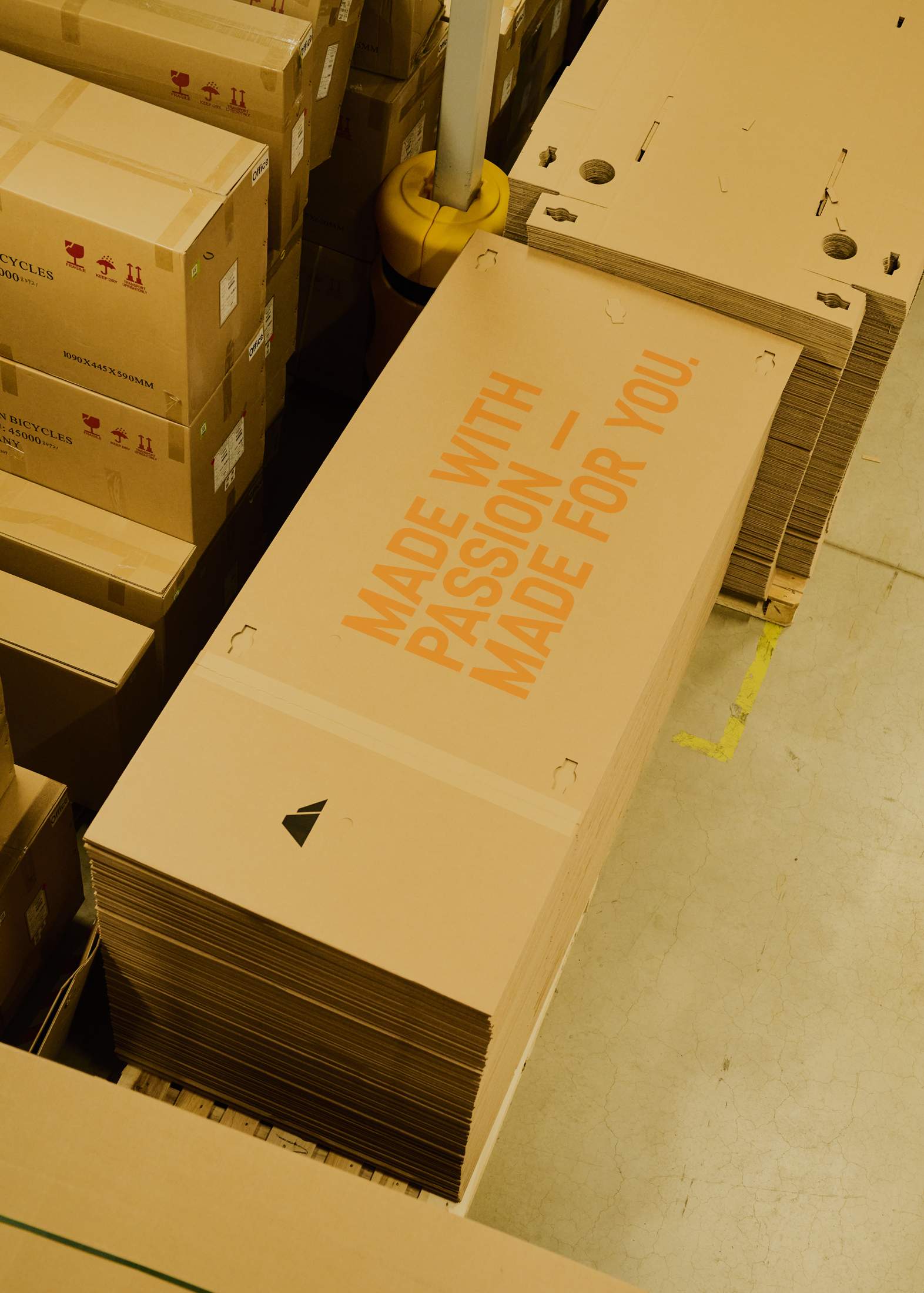
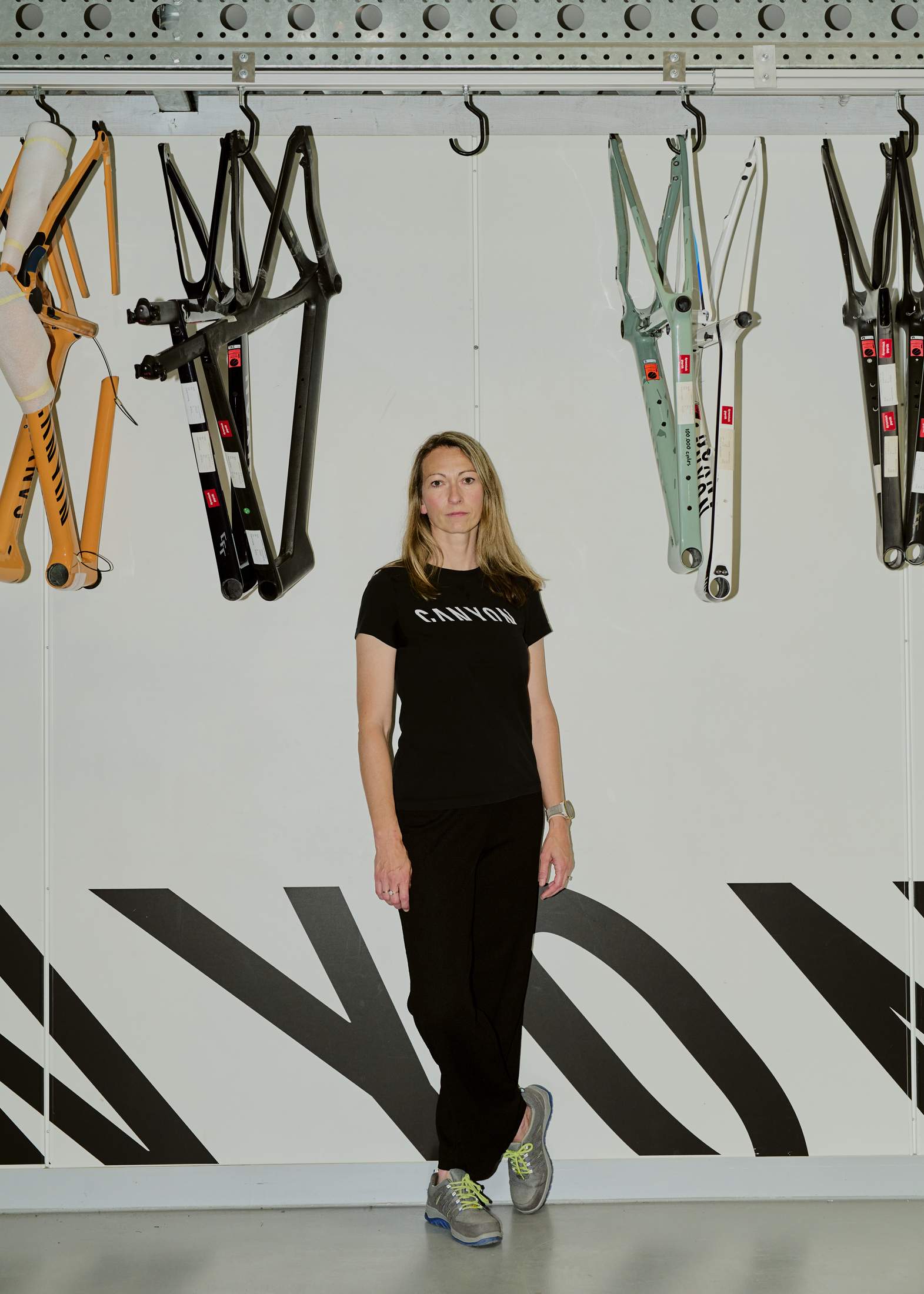
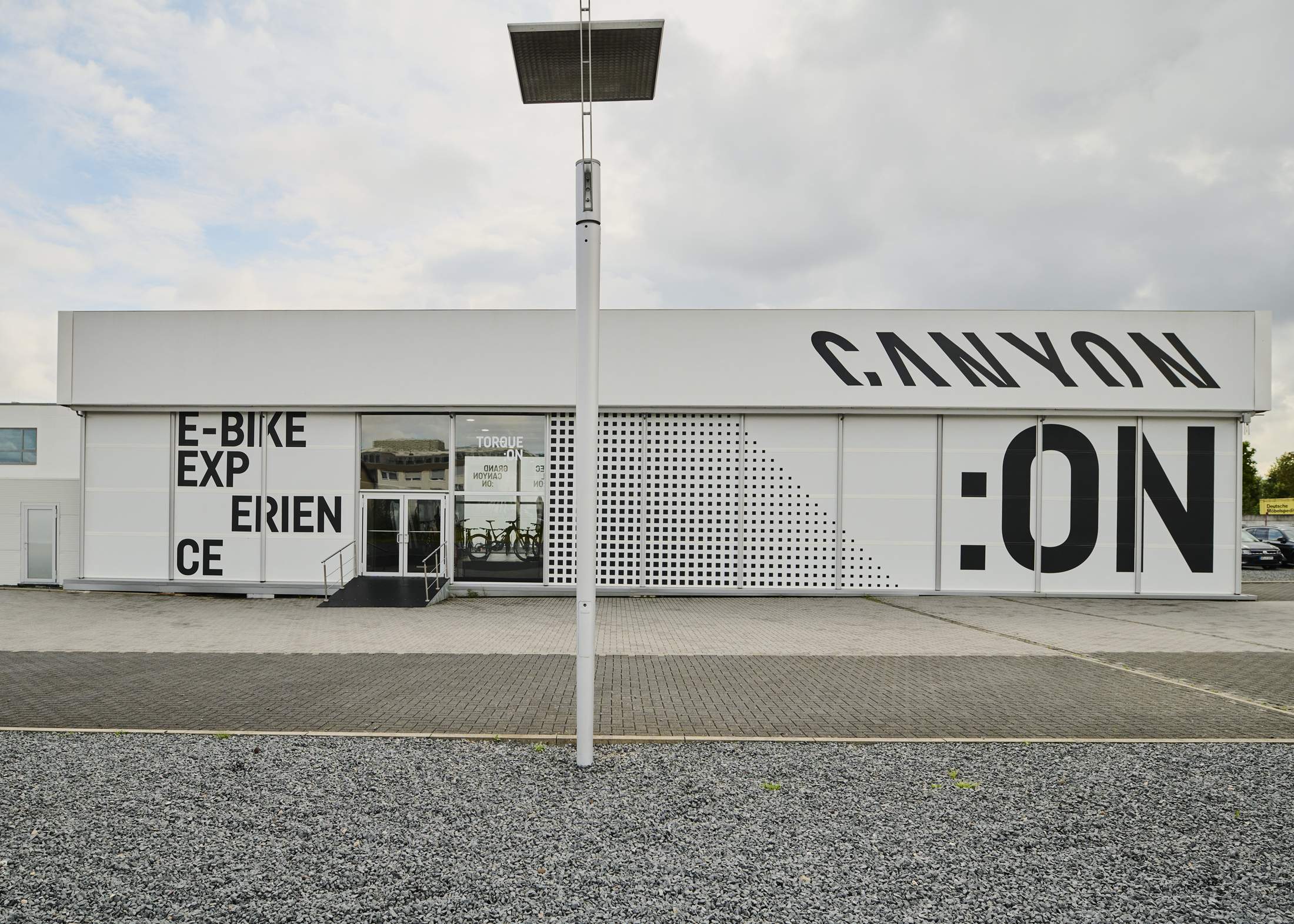
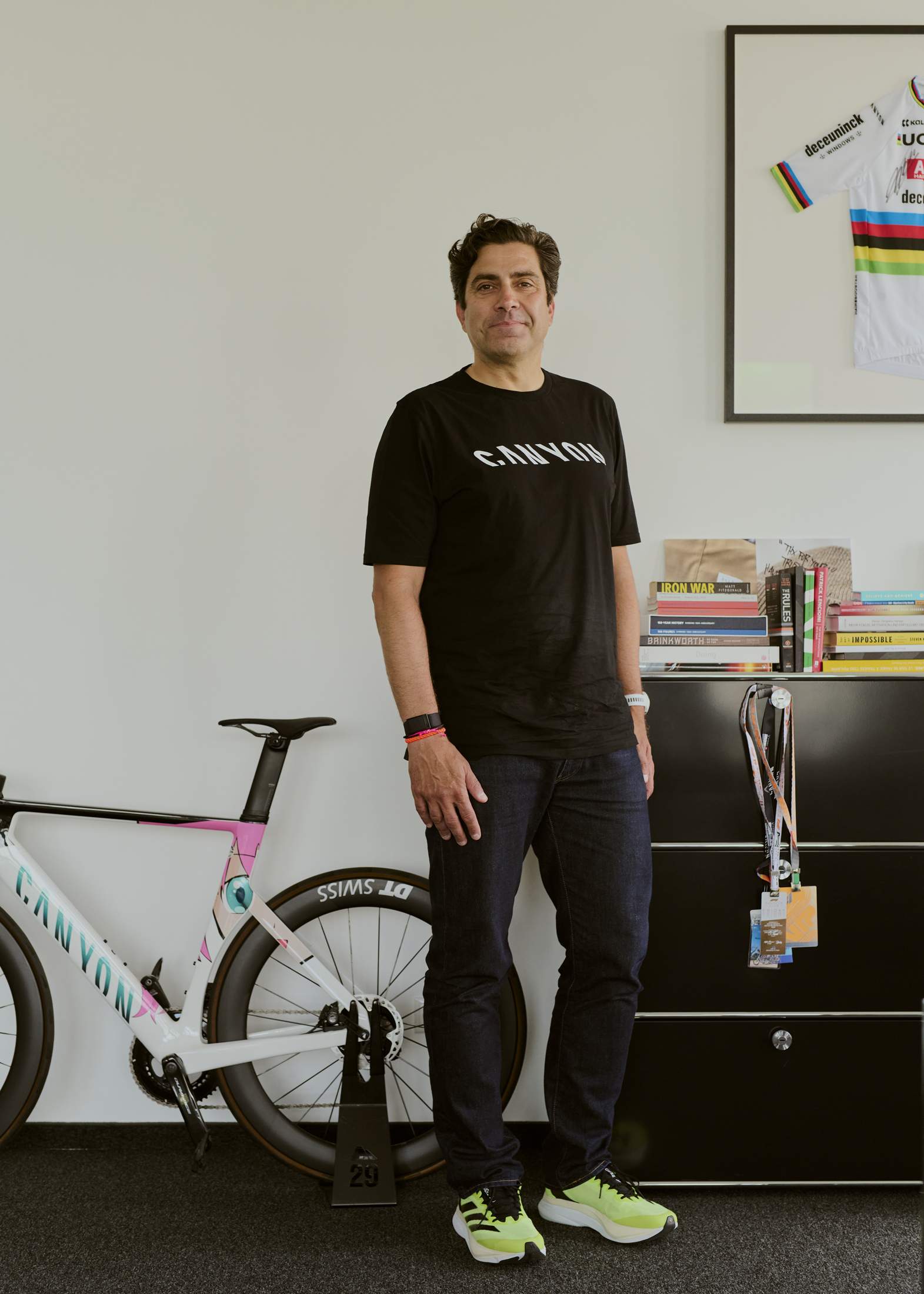

The r&d is just one part of the Koblenz-based design and engineering machine. Canyon is keen to point out its state-of-the-art facilities, including a test lab where such things as frame stiffness are tested and gizmos including a 3D optical scanning arm are deployed to ensure that frames have been made correctly. There’s also a destructive test lab – which sounds more fun than it looks – where Canyon ensures that new bikes can stand the test of time before going into production.
A short drive from the HQ, monocle visits a big factory facility where the bulk of Canyon’s higher-end bikes are assembled. Hundreds of parts are needed to put the bikes together and these come from around the world, from Portugal to Taiwan. The factory, where a flashing green light indicates that work is about to begin on a line of bikes awaiting stages such as gear wiring or motor attachment, can produce up to 400 bicycles a day before they are boxed and shipped. So are there any plans to manufacture outside Germany? “For us, local for local is the ideal: Europe for Europe; Asia for Asia; the US for the US,” says De Ros Wallace. “It’s the ideal but not the reality because much of the industry is in Taiwan.” Still, there are plans to open a warehouse in Asia to make logistics more efficient.
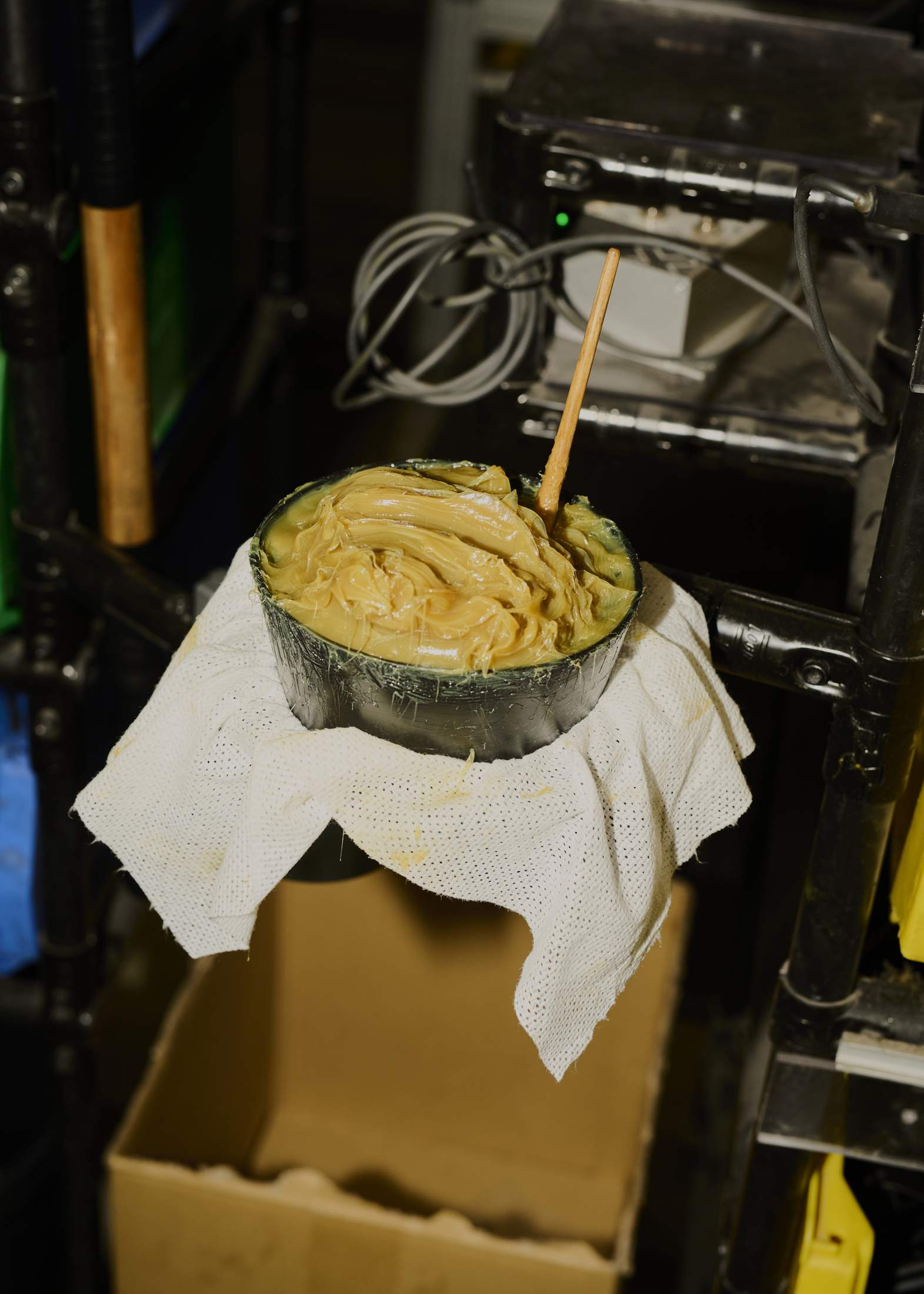
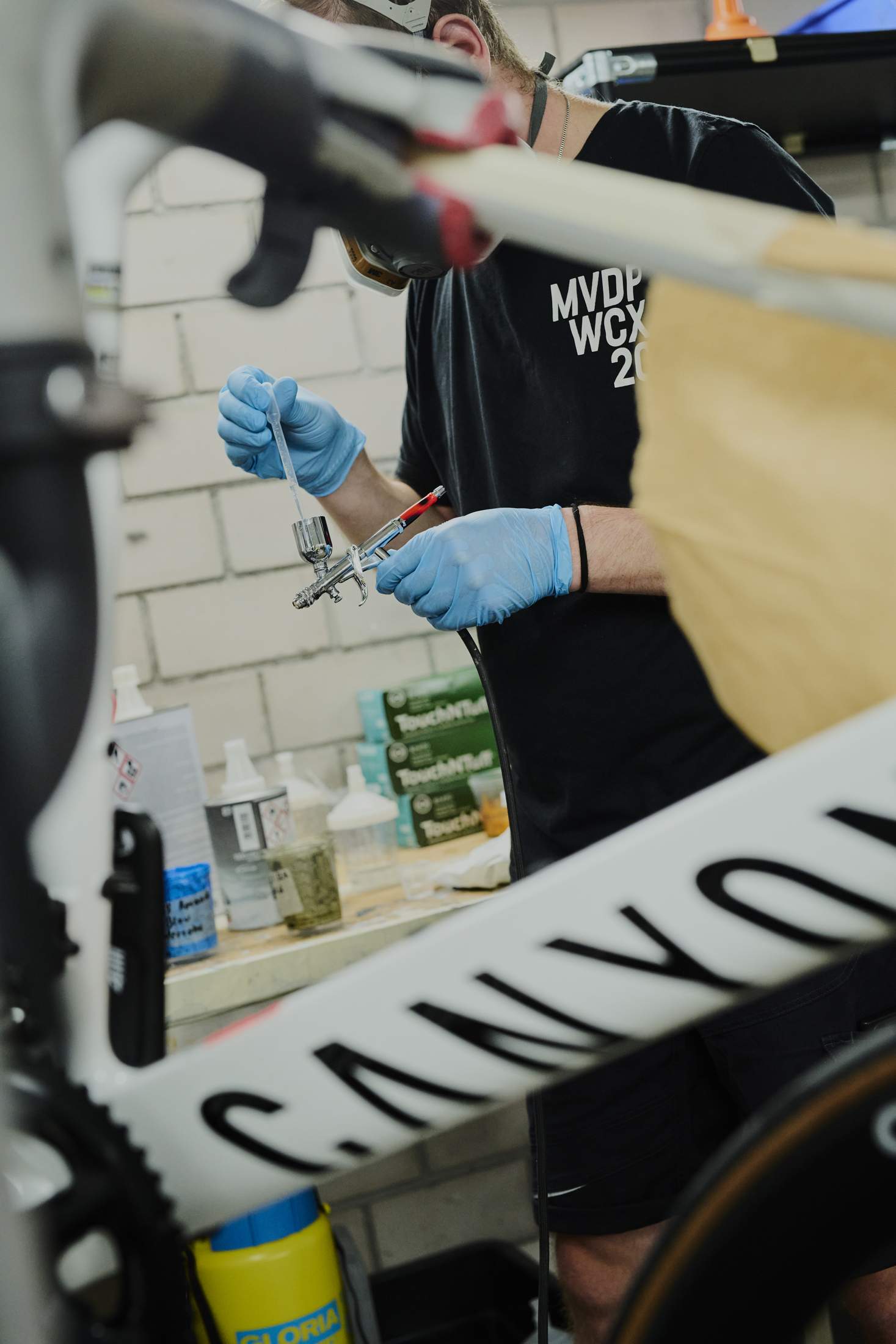
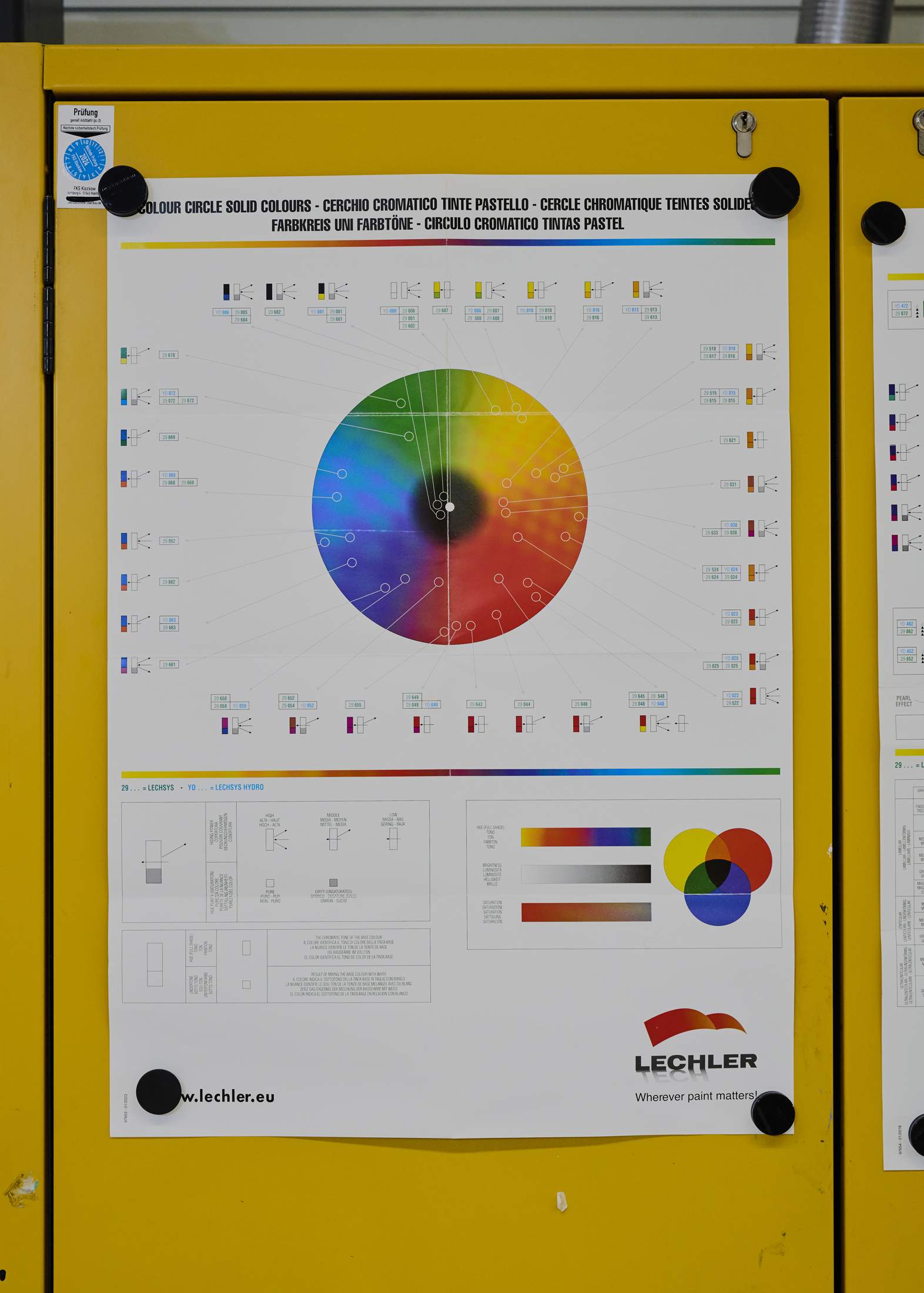

Canyon hopes to forge ahead, despite the industry looking a lot flatter than it did during the pandemic, when everyone seemed to want to hop on two wheels and get fit. Sights are set on growing the current sales of €741m to more than €1bn by 2025, with plenty of opportunity to increase market share in the US, where the company has a southern Californian outpost, as well as southern Europe and Asia. Canyon is also aiming to extend its clothing line and move into accessories such as shoes and helmets. “We’re investing heavily in talent,” says De Ros Wallace, who owns five bikes – all of them Canyons, of course. “We are the right size to manoeuvre.” —
Spoilt for choice
Customisation will be a key part of Canyon’s future success. Customers will soon be able to pick out their bike’s paint finishes, wheels and more.


